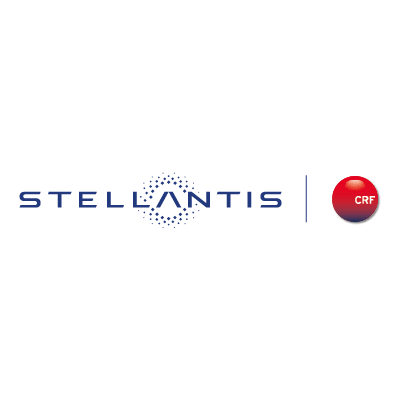EVENTS Consortium comprises of 12 partners within 6 EU Member States and UK. The project has followed a multidisciplinary approach, purposefully selecting partners with distinct scientific, technical and operational expertise to secure high-quality contributions in addressing all aspects of the project.
Our Partners
ICCS
I-SENSE Research Group, of the Institute of Communication and Computer Systems (ICCS)
EVENTS Project Coordinator
EVENTS Project Manager
EVENTS Day-to-day Manager
EVENTS Main Developer

Ms. Irini Krimpa
EVENTS Communication Officer

Ms. Marilena Xarcha
EVENTS Administrative Manager
ICCS, Institute of Communication and Computer Systems, is a non-profit Academic Research Body established in 1989 by the Ministry of Education, Research and Religious Affairs to carry applied Research and Development activity in the areas of telecommunications, computer systems and their application in a variety of research themes. ICCS is linked to the National Technical University of Athens (NTUA) and in particular with the School of Electrical and Computer Engineering (ECE). ICCS consists of more than 50 labs, research groups and teams, dealing with all aspects of Electrical and Computer Engineering and employs approximately 800 researchers and scientists including Faculty Members, permanent or long-term Researchers.
In the EVENTS project, ICCS is represented by one of its Research Groups, the I-SENSE Group. I-SENSE Group consists of more than 100 researchers of various ranks and is very active in a number of scientific and research areas, with main application areas being the Intelligent Transportation Systems, the Virtual Environments, the Assistive Technologies and the Smart Integrated Systems & Communication. I-SENSE has coordinated and participated in more than 150 Research Projects, both EU funded and National ones, over the last 20 years, and has worked with several industry leaders since its establishment in 2002, serving currently as the Coordinator of the following projects: EVENTS, PODIUM, HYPERION, Cyber-MAR,5G-IANA, IN-PREP, eCharge4Drivers, CitySCAPE and DIONE.
ICCS is coordinating the EVENTS project and is responsible for the project’s administrative, financial, technical and data management. In addition, is responsible for identifying innovation opportunities, handling potential risks and assuring the quality of all project outputs, fostering the flow of information between the consortium and the European Commission. ICCS is also maintaining a very active role in several WPs, contributing to the development of the perception System of EVENTS, the machine learning techniques for data curation and labelling, the behavioral decision-making, the SW integration in simulation environments, the vehicle functional safety compliance, while is leading the evaluation of algorithms methodology and scope. Moreover, in EVENTS project, ICCS is involved in the data collection and preparation for analysis, the technical evaluation of systems operation, the cost-benefit analysis of different types of on-board sensors and the project’s communication, dissemination and standardization activities.
Ulm University
Institute of Measurement, Control and Microtechnology at Ulm University (UULM)
Project leader for UULM university
EVENTS Researcher
Research at the Institute of Measurement, Control and Microtechnology at Ulm University (UULM) comprises modelling, analysis, and simulation of dynamic systems, design methods for distributed-parameter and multi-agent systems, model-based measurement methods, as well as fusion methods for information from multi-channel sensor streams. An additional focus is set on methods for estimating states and probability of existence of objects measured by sensors and on classification methods. Areas of application include, but are not limited to automotive and medical engineering. Teaching comprises basic and advanced courses on measurement, control, and automation engineering.
In EVENTS, the main contributions of UULM are in the areas of augmenting the on-board perception with V2X (including the leadership of the respective Task 3.4) as well as self-assessment within the perception system. UULM operates a pilot installation of connected intelligent infrastructure sensors at an intersection in a suburb of Ulm for V2X tests in real traffic and will evaluate and demonstrate its findings using one of its own test vehicles for automated driving.
SEAbility
Research and Innovation Department
EVENTS Communication Manager
EVENTS Day-to-day Communication Manager
SEABILITY ltd is active in the fields of Intermodal Freight Transport (road, air, and sea) and logistics. Being a user of road transport operations SEABility is highly interested in new technologies and particularly in the effect that automation will have in operations. The challenges we handle are related to connectivity issues, data handling and security. SEABility acts also as an ICT and technology provider offering SoA solutions and consultancy services on all its core business domains (e.g. logistics, transport, etc.), as well as new business areas such as environmental applications, and safety and security applications.
SEABILITY leads the outreach Work Package 7, which includes except for leading the dissemination and communication activities (task 7.1), the Exploitation & innovation management activities (task 7.2) and Social innovation & gender equality activities (task 7.4), the Standardisation & international liaison activities (task 7.3, which is led by WMG). SEAB, also, contributes to EVENTS Technical management (task 1.2), Quality and risk management (task 1.3) & Data management and open science (task 1.4) as part of WP1 and participates in Use cases identification and specification as part of Task 2.1 and in Evaluation methodology and scope as part of Task 6.1.
Tecnalia
Sustainable Mobility Unit
EVENTS Project Manager
EVENTS Researcher
EVENTS Researcher
EVENTS Researcher
TECNALIA is the largest applied research and technological development center in Spain, a European benchmark and a member of the Basque Research and Technology Alliance.
TEC´s vision is to be the agents of change in companies and society, adapting them to the challenges of a constantly evolving future, and transforming technological research into prosperity.
TECNALIA´s unit active in EVENTS is “Sustainable Mobility”, which includes the following areas: Connected and Automated Mobility; Urban Mobility; Zero Emissions Vehicles; Hydrogen for Mobility and Intelligent Infrastructures.
Perciv AI
EVENTS Project Manager
EVENTS Project Manager
EVENTS Project Manager
Perciv AI provides next-generation, AI-powered perception for radars, enhancing their potential in autonomous driving and advanced driver-assistance systems (ADAS). We provide innovative software solutions that upgrade the perception capabilities of radars, which is crucial in improving safety and comfort for end-users. By turning the radar market into a software market, we are effectively decoupling hardware and perception software, allowing for hardware replaceability, software upgradeability, and versatility in terms of computing resources, from edge to central computing solutions.
The outcomes of the EVENTS project will be integrated into the Perciv AI Radar Perception SDK. This cutting-edge software kit is designed to extend the perception capabilities of radar sensors in autonomous vehicles. Tailored for precision, our software ensures vehicles are safer and more dependable, even under challenging conditions. The enhancements developed by Perciv AI as a participant of EVENTS are expected to boost our software’s performance, making it an industry benchmark, especially in adverse scenarios.
HITACHI France

Mr. Massimiliano Lenardi
Manager of the Autonomy and Circularity Laboratory (ACL) and EVENTS Team Member

Mr. Anthony Ohazulike
EVENTS Tech Lead

Mr. Quan Nguyen
EVENTS Team Member
Hitachi Social Innovation Business leverages 110 years of expertise in Operational Technologies and over 60 years in Information Technologies. We combine the physical and digital to help power a sustainable global society in the IoT age. We contribute to society through the development of superior, original technology and products. Our commitment to create Social, Environmental, and Economic value for our customers continues to inspire meaningful and practical innovation across all Hitachi Group companies.
Consisting of 150 individual companies and supported by the diversity and passion of 32,000 employees, Hitachi Group in Europe delivers the European operations of the global Hitachi Group.
Hitachi’s European R&D Centre (ERD) is part of the Corporate Research & Development Group. Researchers at ERD work together with the business units within Hitachi, partners and customers to develop new solutions through collaborative creation. ERD has researchers located in London, Cambridge, Copenhagen, Munich, and Sophia Antipolis. They are working on five domains: Autonomy for transport, Circular Economy, Mobility, Energy. In the automotive domain, ERD develops innovative control and powertrain solutions for vehicles of the future.
As EVENTS project partners, ERD’s France and UK teams are focusing on meeting the complex technical challenges relating to autonomous driving in challenging environments, including predicting and safely responding to other moving objects such as pedestrians, cyclists, and cars; as well as delivering accurate and robust localisation solutions. Hitachi Europe will monitor and coordinate the technical progress of each Work Package, and lead the WP2 and several Tasks in other WPs.
APTIV
EVENTS Project Manager
EVENTS Technical Manager
EVENTS Safety Analysis
EVENTS System Integration
EVENTS Simulation of Perception
EVENTS Use-case analysis, Requirements for Perception
Aptiv is a global high-technology company that develops technologies for active safety, autonomous driving, user experience and communication services, thus changing the future of mobility. To this end, Aptiv supplies software solutions, modern computer platforms and network architectures, making it one of the leading integrators of software and system technologies in the field of mobility. Aptiv Services Deutschland GmbH is a legally independent subsidiary of the Aptiv Tech Group, which develops sustainable technologies for the mobility of tomorrow. With its system competence for automotive electronics – including both hardware and software -, technologies are developed to increase road safety, make mobility more sustainable, and better network road users, their automobiles and systems with each other and with the infrastructure.
APTIV’s main role within EVENTS is related to the perception and system integration as WP5 leader.
APTIV’s expertise and access to critical infrastructure:
Tier 1 supplier with extensive experience in perception algorithms and in-vehicle system integration. It owns and offers to EVENTS:
- A prototype vehicle for integration and testing of developed algorithms,
- Sensors deployed into the vehicle prototype with a higher precision than automotive grade sensors to generate synthetic ground truth for data analysis,
- Infrastructure to conduct automotive tests in a safe environment (test track),
- SW to simulate use-cases & vehicle dynamics where algorithms can be tested prior to the vehicle testing,
- Server to host logged vehicle data for analysis and evaluation of vehicle test drives with capabilities to replay data, ground truth and automatic KPI generation.
HITACHI UK

Mr. Nick Blake
Chief Innovation Strategist and Manager of Digital & Data Innovation Laboratory

Mr. Alireza Ahrabian
EVENTS Tech Lead
Hitachi Social Innovation Business leverages 110 years of expertise in Operational Technologies and over 60 years in Information Technologies. We combine the physical and digital to help power a sustainable global society in the IoT age. We contribute to society through the development of superior, original technology and products. Our commitment to create Social, Environmental, and Economic value for our customers continues to inspire meaningful and practical innovation across all Hitachi Group companies.
Consisting of 150 individual companies and supported by the diversity and passion of 32,000 employees, Hitachi Group in Europe delivers the European operations of the global Hitachi Group.
Hitachi’s European R&D Centre (ERD) is part of the Corporate Research & Development Group. Researchers at ERD work together with the business units within Hitachi, partners and customers to develop new solutions through collaborative creation. ERD has researchers located in London, Cambridge, Copenhagen, Munich, and Sophia Antipolis. They are working on five domains: Autonomy for transport, Circular Economy, Mobility, Energy. In the automotive domain, ERD develops innovative control and powertrain solutions for vehicles of the future.
As EVENTS project partners, ERD’s France and UK teams are focusing on meeting the complex technical challenges relating to autonomous driving in challenging environments, including predicting and safely responding to other moving objects such as pedestrians, cyclists, and cars; as well as delivering accurate and robust localisation solutions. Hitachi Europe will monitor and coordinate the technical progress of each Work Package, and lead the WP2 and several Tasks in other WPs.
WMG
The University of Warwick
EVENTS Project Manager
EVENTS Project Technical Lead
Warwick Manufacturing Group (WMG), University of Warwick, is a research-intensive academic department of the University of Warwick with over 800 staff and one of the world’s leading research and education groups, designing solutions and overcoming challenges through collaborative R&D. WMG is internationally renowned for its research in the areas of connected and automated vehicles (CAV) and manufacturing. WMG is well integrated with the UK automotive industry and hosts the UK’s flagship National Automotive Innovation Centre, established with some £150m investment by JLR, Tata Motors’ European Technical Centre, and the UK Research Partnership Investment Fund, addressing the ‘smart and connected car’ agenda of the UK Automotive Council. Intelligent Vehicle (IV) Research Group of WMG, which hosts a critical mass of about 80 academics, research fellows, engineers, and Ph.D. students organised into four pillars, Cooperative Autonomy, Connectivity Systems, V&V, and Human Factors. Integrated with the IV Research group is a Centre for Doctoral Training focusing on autonomous mobility. IV Group currently has a portfolio of about £18 million in research projects funded by UKRI, EU H2020, and various commercial partners. For example, the IV group is a partner of the €68-million and 34 partners H2020 project (L3Pilot – led by Volkswagen in collaboration with 13 other OEMs) and leading the £5.2 million TASCC CARMA (funded by JLR and EPSRC). IV Group has a set of state-of-the-art research facilities for connected and autonomous vehicles development and testing, including the £35 million Midland Future Mobility CAV testbed, £4 million EPSRC-funded 3xD simulator, a fleet of 2 autonomous cars, and 3 autonomous PODs. IV team has extensive collaboration links to the automotive and ICT sectors.
The involvement of WMG in the EVENTS project will be two-fold. The first is the design of localisation modules resilient to onboard sensor impairments due to adverse weather conditions, faults, and occlusions. This activity is necessary to build trustworthy localisation for automated driving functions such as adaptive cruise control and automated lane-keeping. Throughout the project, the design of effective integrity monitoring mechanisms will also benefit from the Open Innovation Vehicle Platform (WMG prototype vehicle) for extensive data collection, field trials, and experimentation. The second involvement of WMG is to coordinate the link between the EVENTS project and several standardisation and regulatory bodies and organisations such as ISO, BSI, and SAE to align the project results and outcomes with future standards.
STELLANTIS
Centro Ricerche Fiat

Mr. Fabio Tango
Project leader and the technical reference of EVENTS for CRF

Mr. Giulio Borrello
Implementation and integration activities for the CRF vehicle
CRF (Centro Ricerche Fiat), headquartered in Orbassano (Turin) with other branch sites in Italy, was established in 1978. As a focal point for research activities of FCA (Fiat Chrysler Automobiles), CRF has the mission to:
- develop and transfer innovative powertrains, vehicle systems and features, materials, processes and methodologies together with innovation expertise in order to improve the competitiveness of STELLANTIS products;
- represent the group in European collaborative research programs, joining pre-competitive projects and promoting networking actions;
Also, through the cooperation with a pan-European network from industry and academia, CRF conducts collaborative research initiatives at the national and international levels in partnership with all the key public and private stakeholders concerned with sustainable mobility, targeting specifically the industrial exploitation of research.
The CRF research activities imply strategic competences not only in the field of automotive engineering, but also in the fields of manufacturing, advanced materials, ICT and electronics, as well as a wide range of state-of-the-art laboratories and extensive test facilities, including advanced engine & vehicle testing facilities, EMC chambers and a dynamic driving simulator with immersive virtual reality.
CRF participates in all major EU CCAM projects (e.g. L3Pilot, Hi-Drive) working with decision-making algorithms and vehicle control, like the development activities performed in EVENTS project. CRF is responsible for piloting activities and technical performance evaluation (leader of WP6 and responsible of task T2.2 on requirements). CRF offers a prototype vehicle. In addition, it owns a Laboratory of vehicle ADAS and Automation SW development, as well as Test Tracks at Orbassano Centro Sicurezza and at Balocco.
TU Delft
Intelligent Vehicles Group
Project Leader for TU Delft
EVENTS Researcher
The vision of the Intelligent Vehicles group at TU Delft is to increase the safety, comfort and efficiency of transportation by means of automated driving. We conduct problem-driven research within the interdisciplinary spectrum of machine perception, dynamics and control, and human factors. Our focus lies on complex (urban) traffic scenarios, on challenging vehicle driving manoeuvres and on interaction of self-driving vehicles with humans.
Within the EVENTS project, the TU Delft considers the interaction of the self-driving vehicle with Vulnerable Road Users (VRUs) in complex urban environment. Within this use case, TU Delft focuses on environment perception and motion planning. It will demonstrate its results in a vehicle demonstrator.






































